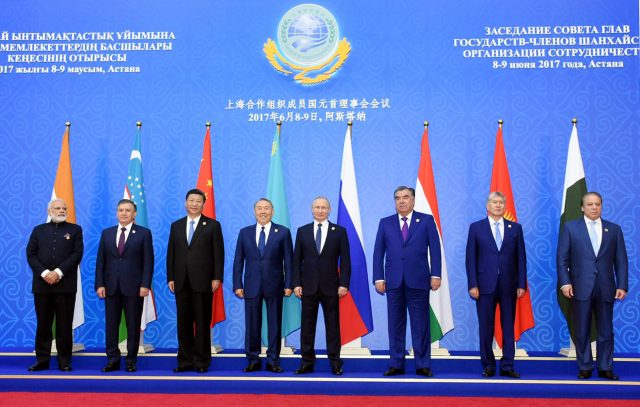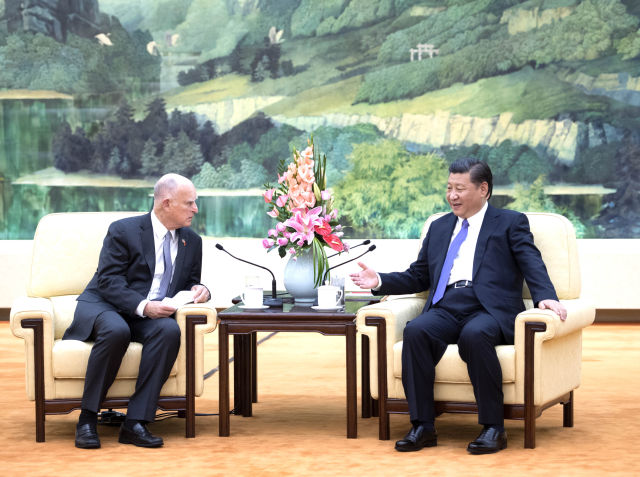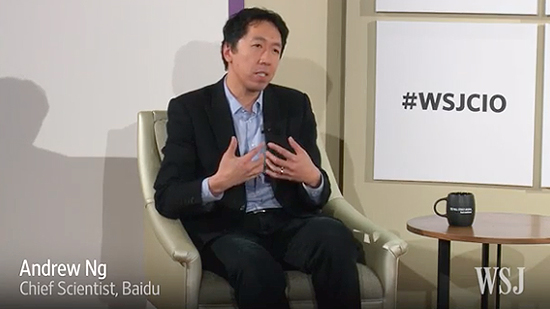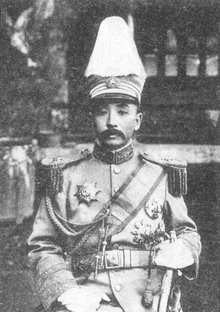
 India, Pakistan formally welcomed into the Shanghai Cooperation Organization
India, Pakistan formally welcomed into the Shanghai Cooperation OrganizationThe presidents of the Shanghai Cooperation Organization member-states granted Pakistan and India membership at a summit in Astana on June 9. The Shanghai Cooperation Organization is a security bloc led by Russia and China, and also includes the Central Asian nations of Kazakhstan, Kyrgyzstan, Tajikistan, and Uzbekistan. It was originally formed as a cooperation to demilitarize borders in the region, but has since expanded to include information sharing, counterterrorism, and even joint security and economic development plans. President Xi Jinping spoke in Astana Kazakhstan on Thursday (June 8) saying, "Recent acts of terrorism in this region show that the fight against the three forces (of terrorism, separatism and extremism) remains a long and arduous task."
The Indian Express reported that India has long wanted to be a member of the organization, but that Pakistan's participation may also pose a threat. Writing in The Diplomat, Casey Michel says the ascension of India and Pakistan is "something of a regional watershed," and that it "won't exacerbate the tensions running between India and Pakistan," but may make coordination between the pan-Asian nations all the more difficult--especially in combatting terrorism. Russia welcomed India and Pakistan, in part to dilute the influence of China as regional development projects also become a major focus of the organization. China also thought that bringing India and Pakistan together could, "improve their relations and inject new impetus to the development of the SCO," according Chinese Foreign Ministry spokesperson Hua Chunying.
Turkey, which is a participant in NATO has also shown interest in joining the SCO as a member (it is already a dialogue partner) and could potentially "form a bridge between NATO and the SCO." Russia has also appealed for Iran to also be admitted, to which China's Assistant Foreign Minister Li Huilai agreed: "China welcomes and supports Iran's wish to become a formal member of the SCO." Here is a primer from the Council on Foreign Relations on the SCO.
 China Looks to California, not Trump, on Climate Change
China Looks to California, not Trump, on Climate ChangeCalifornia Governor Jerry Brown has been receiving a lot of attention for being an unofficial U.S. climate change ambassador. The Los Angeles Times called his last-minute meet-up with President Xi which went for an hour as, "a rare diplomatic coup that catapults California into quasi-national status as a negotiator."
According to a Xinhua News Analysis (link in Chinese), Xi sought to highlight the possibilities of the sub-national level of cooperation in bilateral ties, which in Xi's words were a "new driver." The meeting also showcased China's desires to work with innovative green-tech technologies and regions, such as California. The governor began his trip to China by stopping in Chengdu and Nanjing, where he signed provincial agreements between Sichuan, Jiangsu, and California. China and California were also able to announce the establishment of a new U.S.-China Climate Change Institute at Tsinghua University. Reuters quoted Yao Qiang, director of Tsinghua's Laboratory of Low Carbon Energy as saying that, "The institute would focus not only on technological innovation, but also climate change policies and strategies." This was Brown's fourth meeting with Xi since 2012.
On the sidelines of the same clean energy conference in Beijing where Brown and Xi met, Secretary of Energy Rick Perry met with politburo member Zhang Gaoli, saying that the U.S. and China could cooperate in new energy areas such as, "liquefied natural gas, nuclear energy and carbon capture" technology. Perhaps referring to U.S. President Trump's wing of support, he also stated, "I hope China will step in and attempt to take the mantle [of climate leadership] away."
 That AI could one day pose an existential threat 'is a little like worrying about overpopulation on the planet Mars.'
That AI could one day pose an existential threat 'is a little like worrying about overpopulation on the planet Mars.'These comments were made Andrew Ng, a Stanford University adjunct professor and former top AI scientist at Alphabet Inc.'s Google and Baidu Inc. Ng was speaking with Tong Zhang, head of Tencent's AI lab at a Wall Street Journal event in Hong Kong on Thursday (6/8). The takeaway: The U.S. is ahead of China in AI innovation, but not for long. In particular, Ng thought that U.S. universities were leading the way in AI research, but hinted it could soon change with Chinese universities quickly improving in innovation research. Ng said, "Almost anything that a typical human can do in less than one second of mental thought we can now automate in the future using AI."
Baidu has reportedly been developing AI to filter out "fake news" which is as much of a problem in China as elsewhere in the world. Just this week WeChat announced (link in Chinese) a new feature for filtering out and debunking news and rumors. As Quartz reports, "The program also turns rumor reading into a social game of sorts. It gives users a ranking based on how many debunked rumors they've read, and lets them share faves with friends. And if a user shared a piece of news with friends that was later debunked, the program sends a notification informing them the article is false."
China is also cracking down on celebrity gossip news, based on a new cybersecurity law--in particular a section which "prohibits the publishing of defamatory content or engaging in any online activity that can infringe upon others' privacy, intellectual property rights or other rights." Jing Daily quoted cyberspace authorities as wanting to "actively propagate core values of socialism, and create a healthy and positive online environment." Caixin reported that several of the accounts taken down on Baidu and Weibo were Zhuo Wei's, who has been called the "No. 1 paparazzi reporter in China."
 On This Week in Chinese History in 1928On June 4, 1928, Zhang Zuolin, a warlord during the nascent years of the Republic of China, was assassinated by Japanese agents. Known as "Marshall Zhang," the military strongman ruled Manchuria from 1916 to 1928, during the Warlord Era in China. Zhang made large advances throughout China, finding particular success in the early 1920s. He gained control of Peking, including China's internationally recognized government, in April 1926. The economy of Manchuria, the basis of Zhang's power, was overtaxed by his war adventurism and collapsed in the winter of 1927. He was then defeated by the Nationalists under Chiang Kai-shek in May 1928. He ultimate demise came by from a bomb which was planted by a Japanese Kwantung Army officer on June 4, 1928 as his train passed through the Japanese-operated South Manchuria Railroad. Nearly 20 years later at the Tokyo War Crimes Tribunal in 1946, it was revealed that Zhang was murdered because the Kwantung army was infuriated by his failure to stop Chiang's army, which was backed by Moscow, Tokyo's strategic rival.
On This Week in Chinese History in 1928On June 4, 1928, Zhang Zuolin, a warlord during the nascent years of the Republic of China, was assassinated by Japanese agents. Known as "Marshall Zhang," the military strongman ruled Manchuria from 1916 to 1928, during the Warlord Era in China. Zhang made large advances throughout China, finding particular success in the early 1920s. He gained control of Peking, including China's internationally recognized government, in April 1926. The economy of Manchuria, the basis of Zhang's power, was overtaxed by his war adventurism and collapsed in the winter of 1927. He was then defeated by the Nationalists under Chiang Kai-shek in May 1928. He ultimate demise came by from a bomb which was planted by a Japanese Kwantung Army officer on June 4, 1928 as his train passed through the Japanese-operated South Manchuria Railroad. Nearly 20 years later at the Tokyo War Crimes Tribunal in 1946, it was revealed that Zhang was murdered because the Kwantung army was infuriated by his failure to stop Chiang's army, which was backed by Moscow, Tokyo's strategic rival.
Prepared by China-US Focus editorial teams in Hong Kong and New York, this weekly newsletter offers you snap shots of latest trends and developments emerging from China every week, while adding a dose of historical perspective.
- 2017-06-02 Once Partners in Fighting Climate Change, Trump Retreats, China Stays Steady on Paris Climate Accord
- 2017-05-26 Chinese Missile Frigates Confronts USS Dewey as U.S. Resumes FON Operations in South China Sea
- 2017-05-19 The Belt and Road Forum Concludes Leaving Behind Mixed Reactions
- 2017-05-12 Beijing, Washington Reach First Trade Deal Under 100-day Plan
- 2017-05-05 Degree of Autonomy Decaying in Hong Kong?
- 2017-04-28 Aircraft Carriers, Submarines, and Jetliners: Now Made in China
- 2017-04-21 Green Cards & Red Lines
- 2017-04-14 U.S Beef for Chinese Chicken? More Hollywood Films in China?
- 2017-04-07 The Xi-Trump Summit in Florida
- 2017-03-31 Google Makes a Comeback to China?
- 2017-03-24 Xi and Tillerson Trade Phrases
- 2017-03-17 Sec. Tillerson Visits Asia ahead of Xi-Trump Summit
- 2017-03-10 Defending China's Defense Budget
- 2017-03-03 The Korean Peninsula Draws Headlines
- 2017-02-22 CPC Meets to Reaffirm Commitments in Anticipation of "Two Sessions"